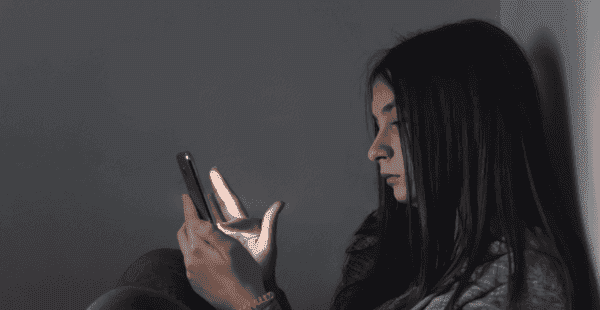Deal with it
If your child has been groomed online or you are concerned that they are at risk, here are tips on how to support them and take action to report it.
If your child has been groomed online or you are concerned that they are at risk, here are tips on how to support them and take action to report it.

If your child is being groomed online, it can be a very distressing time for both of you. It’s important to seek support and guidance as soon as possible and reassure your child that there is help available. Here are a number of actions you can take to deal with the situation.
Grooming can be a tricky subject to talk about with your children but it is important that you start a conversation.
Let them know where to get help if they are concerned and speak to you or a trusted adult for support.
Find out what sites they go to, where they meet their online friends, how they communicate, and what information they share. Make sure they know that having thousands of online friends isn’t always safe.
Explain how easy it is to pretend to be someone else online, and why an adult may wish to approach them.
Find out who your child is talking to
Speak to your child about who they are communicating with, if you still feel uncomfortable, discuss it with their friends, teacher, or someone that might be able to tell you.
Give them advice about the dangers of sharing personal details with people they don’t know in real life and the potential risks of meeting up with someone in real life.
Use our support guide to help a child who may be being groomed online or at risk.
Signs of grooming are difficult to spot because sexual predators often tell children to not stay silent and not speak out about it. Share this Childline video aimed at young people to help them spot the signs of online grooming and what to do.
You can report any concerns that you have about grooming or sexual abuse directly to CEOP.
CEOP is part of the National Crime Agency and helps keep children and young people safe from sexual abuse and grooming online.
What happens when you make a report?
If you make a report you’ll be contacted by one of the Child Protection Advisors via email or phone to talk further about the report you’ve made. Your child safety and wellbeing will be protected and they’ll work with you and other safety professionals to help.
If a crime has been committed they’ll investigate to identify who was involved and bring them into the criminal justice system.
Examples of things children and young people report:
If someone has acted inappropriately towards your child, particularly in a sexual way, you should report it immediately to CEOP
report to CEOPIf you think your child – or another child – could be in immediate danger tell your local police at once.
Call 101 for non-emergencies or 999 if you are concerned that a child is in immediate danger
If you wish to remain anonymous contact Crimestoppers 0800 555 111 or report online.
Report any child abuse images you find hosted by websites to the Internet Watch Foundation.
Click to anonymously and confidentially report child sexual abuse content and content-photographic child sexual abuse images.
Choose to block or unfriend – In some situations, it might be best to encourage your child to block or unfriend the person that caused them harm – particularly if they’re an anonymous user or not known to your child. Your child might be reluctant to do this if they consider the person a ‘friend’ or they know the person from school or the local community. Revisit what it means to be a friend and talk about healthy online relationships.
Report or flag upsetting content – Most social media platforms give you options for reporting or flagging content that breaches their user guidelines and this is always an option. Be aware that the thresholds for offensive content, the process for reviewing reports, and the time it takes to remove content vary according to the social network, game, or app.
Click below to find out how to report online abuse on social platforms.
As a parent, you should always take it seriously and if you have any worries about your child’s mental or physical health see your GP. If you need help talking to them about mental health, then the Mental Health Foundation and Mind have some advice.
Talk to your GP about available support. Many local counselling services offer a sliding scale of cost depending on your family income. It may even be free. This can be quicker than accessing support through your GP. For information of counselling services in your area visit the British Association for Counselling and Psychotherapy and make sure your child knows about Childline and other helplines.
If your child wants to talk to someone in confidence they can call Childline on 0800 1111 or The Mix on 0808 808 4994 (text 80849).
Parents can call the NSPCC’s free 24/7 adult helpline on 0808 800 5000, email [email protected] or text 88858. You can also contact the Stop it Now! helpline (0808 1000 900) where you can seek advice anonymously.
Read this article from Young Minds to learn how can counselling services can help my child.
Read articleHere are some other useful articles and resources to help protect your child from online grooming